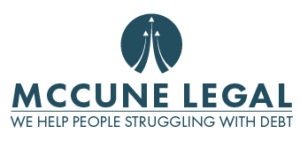Chapter 7 Bankruptcy
What is Chapter 7?
Without question the most common type of bankruptcy filed nationwide is Chapter 7. The Bankruptcy Code refers to Chapter 7 as the “liquidation” Chapter, but that title is rather misleading. Most Chapter 7 cases are what we call “no asset” cases, which means there is no liquidation of ANY of the debtor’s property. This is typically because most of the debtor’s assets are either “exempt” (protected) or of inconsequential value and liquidating them wouldn’t bring any meaningful payout to creditors.

Chapter 7 should always be the first option you look at when considering seeking bankruptcy relief from your debt and creditors! The main reason for that is that Chapter 7 is fast! You are in and out of bankruptcy typically in about 4-5 months. The other reason is that, compared to other chapters, Chapter 7 is relatively inexpensive. There’s typically no payment to creditors and attorneys fees are less than other chapters.
Want to learn if Chapter 7 is the right option for you?
For most people who are struggling with debt, the goal of a bankruptcy filing is to get to a discharge. In Chapter 7, you get there fast.
Do I qualify?
Any individual who resides, is domiciled or has property in the US may file for Chapter 7. You do not have to be a US citizen to seek relief under Chapter 7. Legally married same-sex couples can file a joint bankruptcy. A corporation may file for Chapter 7, however, a corporation is not eligible for a Discharge in Chapter 7. Any individual who files must have received a credit counseling class within the 180 days prior to filing. There’s a unique limitation to filing any bankruptcy case if you were a debtor in a prior case in the last 180 days and failed to abide by a court order or requested a voluntary dismissal of your case. This is unusual but it does happen and there are rules in place designed to keep people from jumping in and out of bankruptcy cases.
Ask these questions when considering Chapter 7:
- Am I eligible to file a Chapter 7 and get a Discharge?
Prior bankruptcy filings and income above certain thresholds can keep you out of a Chapter 7. - Does Chapter 7 make sense for me?
There are many reasons why Chapter 7 might not be the best option: If you have assets above certain exemptions levels, Chapter 7 may NOT be the right option as you risk losing those assets! - Will Chapter 13 provide you greater relief from your creditors?
Chapter 13 is, frankly, a much friendlier place to be and for many of people the expanded protection under Chapter 13 makes more sense than Chapter 7.
When does Chapter 7 not make sense?
Just because you filed a Chapter 7 doesn’t mean you are allowed to stay in Chapter 7.
Income Level:
Occasionally, the United States Trustee (UST) or a creditor will try and kick you out of Chapter 7 if your income is above certain levels. Sometimes, the debtor chooses to leave Chapter 7 if things start to get a little uncomfortable which involves the bankruptcy Trustee (not the UST) coming after assets of the debtor when the debtor might have thought those assets would be protected.
Ineligible for a Discharge:
Another factor to consider is whether the Debtor is eligible for a Discharge. If you’re not eligible for a Discharge, it typically doesn’t make a lot of sense to file a case under Chapter 7. You can’t get a Discharge in Chapter 7 if you already received a Discharge in Chapter 7 (or 11) in the past 8 years or if you already received a Discharge in Chapter 13 in the last six years.
What happens when I file Chapter 7?
A Chapter 7 Bankruptcy is commenced by filing forms with the appropriate Bankruptcy Court. The main form is a voluntary petition but there are a LOT of other forms that need to be filed to make sure your case is properly filed. All of these forms can now be filed electronically. Where the debtor chooses to file a case depends on where the proper Venue for the debtor is. Venue for most consumer cases is going to be where the debtor has lived for the 91 days prior to the filing date The current filing fee for a Chapter 7 case is $335. That fee is paid when the case is filed.
The filing of the case creates what the Bankruptcy Code calls an “order for relief” and puts in place what is called an Automatic Stay. The Automatic Stay is a big deal because it prevents creditors from taking any further action against the debtor. Garnishment, foreclosure, repossession, lawsuits, collection activities, harassment related to debts…. It all must stop automatically! It’s the Automatic Stay that allows debtors to save their homes, possessions and start the process of moving towards a Fresh Start.
The commencement of the case also creates what is called a Bankruptcy Estate. The Bankruptcy Estate is basically all the debtor’s property as of the date of filing the petition. There are a few things that can be pulled back into the estate of the debtor if the debtor becomes entitled to them within 180 days of the filing date, such as an inheritance or life insurance proceeds. Upon filing the case, all of a debtor’s property technically becomes property of the bankruptcy estate. This is a strictly legal entity… nobody shows up to pack all your stuff up because the vast majority of a debtor’s assets can be exempted from the estate (more on exemptions below).
After the case is filed, the Court will assign the panel Trustee. The Trustee will conduct what is calleda “Meeting of Creditors” about a month or so after the case is filed. The Debtor is required to attend this hearing and for most cases that is the only appearance that is required of the debtor. Creditors are allowed to attend the hearing and question the debtor if they would like, but it rarely happens. Most creditor meetings last about five minutes and just involve the Trustee asking the Debtor a handful of questions. The debtor will usually be represented by his or her attorney at the creditor meeting and your lawyer will prepare you for the meeting beforehand.

My clients are usually pretty nervous for the creditor meeting, but I always try to relax them. The creditor meeting isn’t a big deal. The bankruptcy judge is not allowed there and it’s fairly casual. For most cases, it really is a check the box thing. However, for more complicated cases, creditors will show and question the debtor about assets, transfers of property, payments, etc. The average creditor meeting lasts five minutes. Primarily, the Trustee is looking to see if there are any non-exempt assets that belong to the bankruptcy estate so the Trustee can liquidate them and provide a payout to the creditors.
There are various deadlines that come due after the creditor meeting. The most important is the deadline for creditors, or the UST, to object to the debtors discharge. They must have a valid reason to object. Creditors and the UST have 60 days after the creditor meeting to raise the objections. Another deadline is the deadline to object to exemptions that the debtor claimed. The Trustee has 30 days after the creditor meeting to object to the claim of exemptions.
In some cases there are enough non-exempt assets that belong to the bankruptcy estate that the Trustee will open up an “Asset Case.” To open up an asset case there need to be enough assets to provide a meaningful distribution to the creditors. There’s no magic number to what is “meaningful” and it can vary by Trustee, but usually the total value of non-exempt assets needs to be around at least $1,500 – $2,000. The debtor is almost always first given the opportunity to buy back the non-exempt assets from the Trustee. (An example would be a boat: it is easier for Trustee to just sell it to you. The Debtor can make an offer to buy it back from the bankruptcy estate). LAWYERS TIP *** If you potentially have a lot of non-exempt assets that you don’t want to lose, don’t file Chapter 7. File Chapter 13 and pay the value of those non-exempt assets over 3-5 years and keep them!
If a Chapter 7 case is going to be an asset case, the Trustee will send out a notice to all creditors so that the creditors can file a claim. In this case, the debtor is going to want to keep an eye on the claims that get filed because there may be non-dischargeable debts in the case (taxes, student loans) and if they don’t file claims the debtor will want to file a claim on their behalf so they share in the payout. Claims get paid out in a certain order of priority.
It’s important to remember that the discharge is the main goal of a consumer bankruptcy filing. There are other benefits that we’ve discussed, but the discharge is what you really want. It’s a piece of paper, signed by a federal judge that you’ve never met, that wipes out a lot of debt. Not necessarily all of your debt, but a good portion of it. In a Chapter 7, your discharge typically comes about four months after you file the case and for most cases that’s the end. The discharge is typically the finish line of the bankruptcy.
